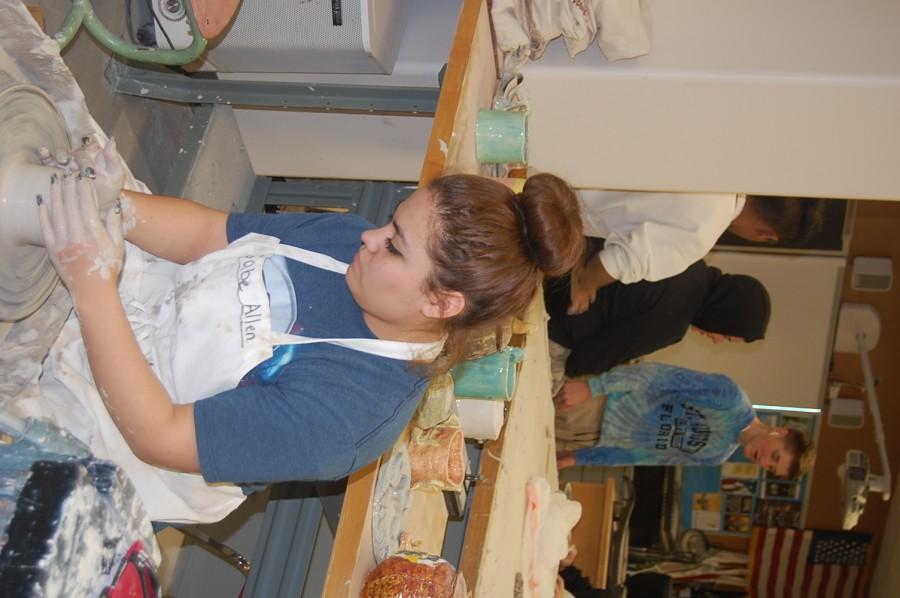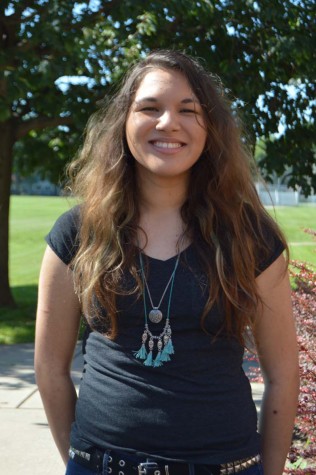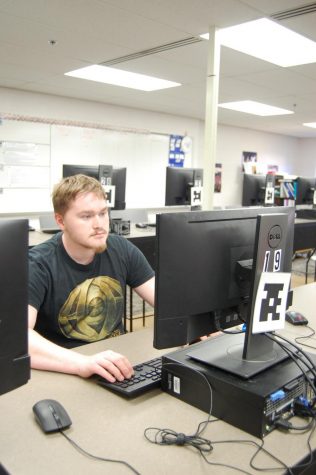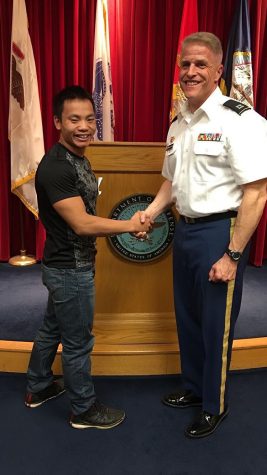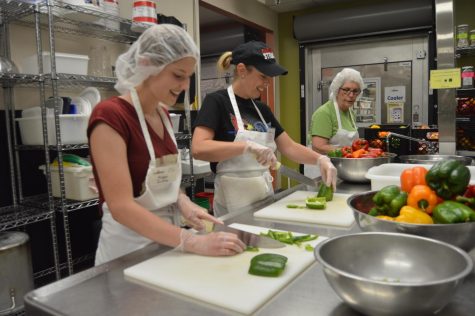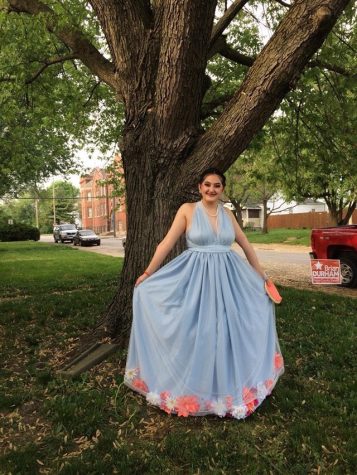First generation college students
Senior Maria Rojas works on her project in Ceramics on Wednesday, Feb. 17.
February 25, 2016
While college may be easy to navigate through for people who have directions those without any directions or a map have to figure out what to do on their own or hike up the courage to ask others about what comes next. Not knowing what to look for, applying for college, or what to do after acceptance letters come in can add to building stress of making life changing decisions.
Counselor Erin Shimp says students with parents who have experience with the whole transition into college, have someone with either personal experience or experience with the process to ask questions and to and learn information.
“Sometimes I think parents are afraid to ask questions because they feel like they should know how to help their student,” Shimp said. “But really, we would love it if parents would come and ask questions especially if it’s not something they’re familiar with so we can help teach them what to do.”
Shimp says she has had many students who don’t know much about the financial aid and scholarship processes ask a lot of questions about how to start or what to do next. She likes helping students out especially when it’s about their future decisions and ambitions. She knows that students who are the first in their family to go to college may have an influence over younger siblings who watch them and want to do what they do.
Senior Maria Rojas is a future first generation college student and says that while some people may view being the first in the family to go to college as a weakness, she views the fact as a motivation to continue her education so as to set an example for her younger sister. She says her parents have always wanted her to have this future, to go to college, since they didn’t. Rojas says her mother doesn’t want her to have the same future turn out she had because she knows how hard it is to get a job without a college degree.
“I completed the application forms by myself and it was very frustrating because my family doesn’t really speak English at home, so my mom couldn’t help me through it,” Rojas said.
Senior Rosemary Hlun is also a future first generation college student and also says that she had to apply to colleges by herself and that she had to ask many people about what to do and what would help her the most in pursuing a post-secondary education. She says that her parents remind her that many life decisions she makes are examples for her younger siblings so she should try to do the best she can so that if they follow in her footsteps and go to college, they will know what to do when the time comes.
“I want to have a better future and lead my siblings into the right path so they can become successful too,” Hlun said. “I feel special and blessed because no one in my family but me has had the opportunity to go to college.”
College seems to be an opportunity to change lives and to strive for a better future according to both Rojas and Hlun. The stress of being the first in the family to do something as important as continuing to study and hopefully have a better future than their parents is worth it because they know they set the example for the rest of their family to follow. Asking for help doesn’t always come easy to many people, says Shimp, but the answers to questions about college and the future can make a big difference so first generation college students should be proud of making a change and helping to create a path others can follow.


